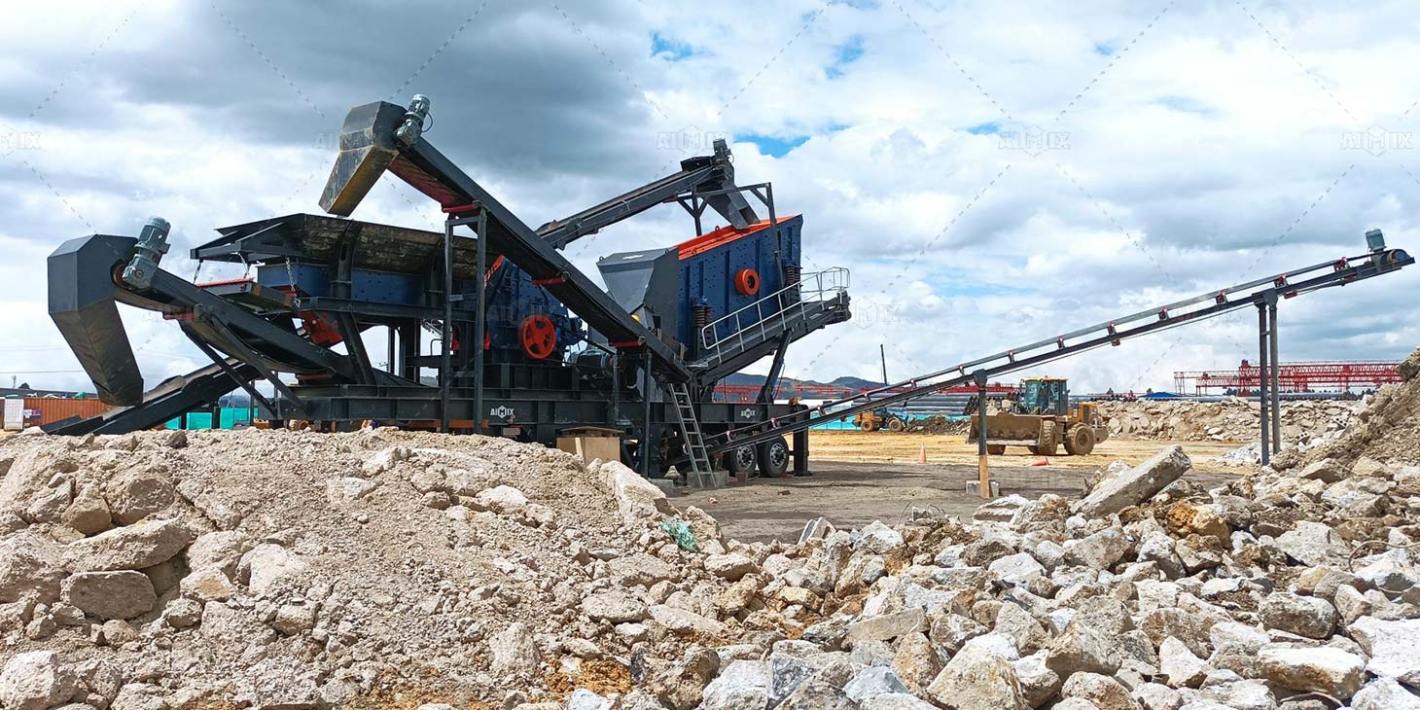Waste is one of the biggest building industry issues. With the increasing demand for infrastructure, demolition, and reconstruction projects, the volume of waste generated continues to rise. Among the various types of waste, concrete is one of the most prevalent, and heavy materials are discarded during construction and demolition activities. However, what was once considered waste is now being turned into a valuable resource, thanks to the technology of concrete crushers.
What Is Concrete Crushing?
Concrete crushing refers to the process of breaking down large concrete structures, such as buildings, roads, and bridges, into smaller, more manageable pieces. This is achieved using specialized machines known as concrete crushers. These machines crush concrete into smaller pieces that can be reused in construction projects, decreasing the requirement for new resources and the environmental impact of development.
The process involves feeding large chunks of concrete into the crusher, where it is broken down into smaller pieces. The crusher’s mechanical components, such as jaws, hammers, and screens, are designed to handle different types of concrete, whether it’s reinforced or unreinforced, making them highly versatile in the demolition industry.
Environmental Benefits Of Concrete Crushers
One of the most significant advantages of concrete crushing is its positive impact on the environment. Traditionally, landfills held building and demolition detritus, including concrete, waste space, and worsening trash management. Concrete crusher near me helps alleviate this issue by diverting much of this waste away from landfills, promoting recycling, and reducing the need for new materials.
Crushing concrete also reduces the energy required to transport heavy loads of debris to landfills, as the crushed concrete can be reused on-site or sent to other projects. This minimizes transportation costs and reduces the carbon footprint associated with construction and demolition activities.
Moreover, crushed concrete can be used in a variety of applications, including road base, aggregate for new concrete, and even as fill material for landscaping or foundation construction. By recycling concrete, the industry helps preserve natural resources, such as gravel, sand, and limestone, which would otherwise be required for new concrete production.
Cost-Effective Construction
In addition to environmental benefits, concrete crushing is a highly cost-effective practice for construction projects. On-site concrete crushing eliminates the need to haul away demolished concrete and purchase new materials for construction. The crushed concrete can be reused as aggregate in new construction, saving money on materials and labor costs. This benefits contractors working on huge infrastructure projects that generate lots of concrete trash.
Furthermore, by recycling concrete, contractors can reduce their overall disposal costs. Transportation and tipping costs make hauling significant volumes of waste to a landfill expensive. By using concrete crushers on-site, contractors can avoid these additional expenses and streamline the waste disposal process.
Concrete crushers also allow construction teams to work more efficiently, as the material can be processed and reused immediately, rather than waiting for external suppliers to deliver new materials. This speeds up project timelines and improves overall productivity.
Innovations In Concrete Crushing Technology
Concrete crushing technology has come a long way in recent years. Modern crushers are more efficient, powerful, and environmentally friendly than their older counterparts. They can handle a variety of concrete types and sizes, offering flexibility for different construction and demolition projects.
One notable advancement is the development of mobile concrete crushers. These crushers can be transported directly to a construction site, allowing contractors to crush concrete on-site, rather than transporting it to a separate facility. Mobile crushers are especially useful in urban areas or locations with limited access to transportation routes. Their mobility allows them to operate in remote or confined spaces, making them a valuable tool for construction companies working in densely populated areas.
Moreover, innovations in dust and noise control systems have made modern concrete crushers more environmentally friendly. These systems minimize the release of harmful dust particles and reduce noise pollution, making the crushing process safer for workers and nearby communities.
The Future Of Concrete Recycling
The role of concrete crushers in recycling construction waste is likely to grow even more significant as the construction industry continues to focus on sustainability. Reducing building waste and using recycled materials are priorities for governments and organisations worldwide. Concrete crushers will help construction companies satisfy stricter restrictions.
The demand for recycled concrete aggregates is expected to increase as cities and municipalities seek to minimize their environmental impact. With improvements in concrete crushing technology, the industry can manage more waste and generate higher-quality recycled aggregates for more applications.
Conclusion
Concrete crushers have transformed the way the construction industry approaches waste management. These tools let construction businesses recycle concrete debris sustainably and cheaply. With their ability to reduce landfill waste, conserve natural resources, and lower project costs, concrete crushers are an essential tool in the modern construction landscape.





























